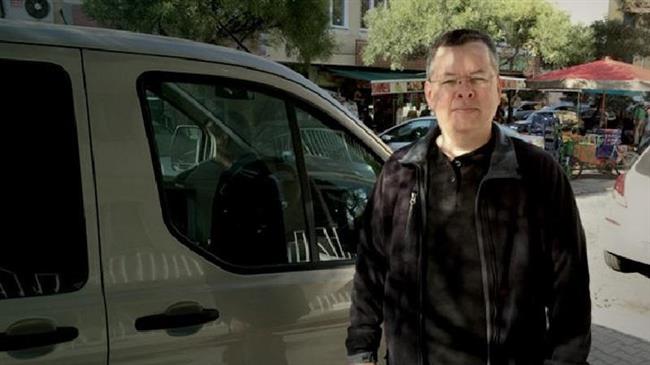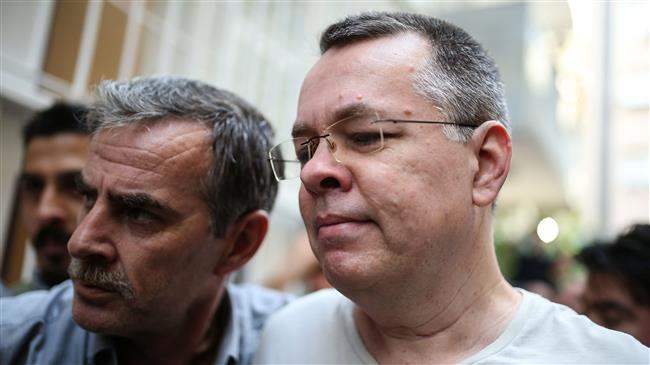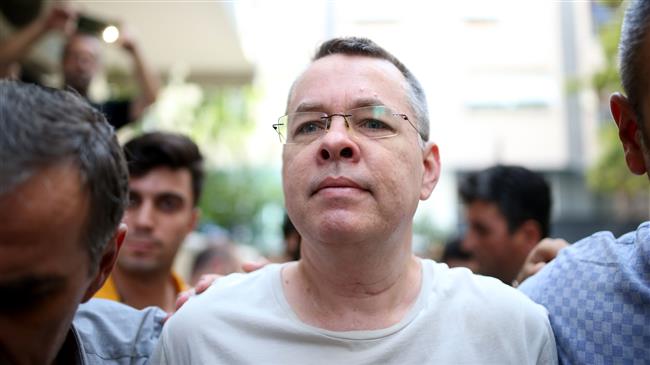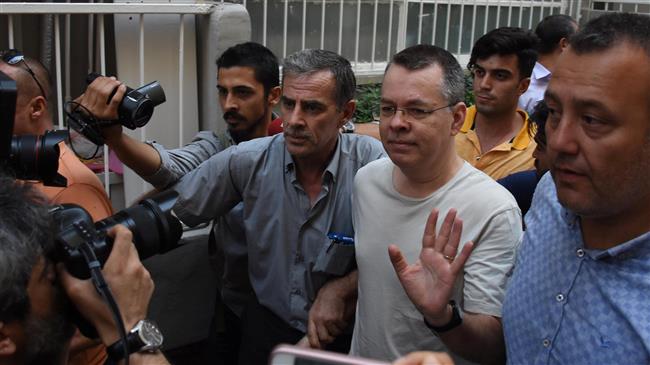American pastor in Turkey appeals again for release, removing of travel ban
An American evangelical pastor, whose detention in Turkey has already caused an unprecedented deterioration in Ankara-Washington relations, has renewed his appeal to a Turkish court to release him from house arrest and overturn his travel ban.
Andrew Brunson’s lawyer, Ismail Cem Halavurt, announced the news on Tuesday, saying that he had filed the demand earlier in the day, around two weeks after his previous appeal was rejected by the Second Heavy Penalty Court in Turkey's western province of Izmir.
Brunson, 50, was indicted by a Turkish court on charges of having links with the Kurdistan Workers’ Party (PKK) militant group and the movement of the US-based opposition cleric Fethullah Gulen, whom Ankara accuses of having masterminded the July 2016 coup attempt against President Recep Tayyip Erdogan.
Brunson has already denied the charges, calling them “shameful and disgusting.” If the evangelical pastor is found guilty, he will face up to 35 years in jail.
The pastor’s imprisonment and then house arrest has caused one of the deepest rows between Turkey and the US, two NATO allies. The growing rift has also sent the Turkish lira into a tailspin.
Trump wrote on Twitter late last month that his country “will impose large sanctions on Turkey for their long time detainment of Pastor Andrew Brunson.” He also said on Friday that he had ordered to double US tariffs on Turkish aluminum and steel imports to 20 percent and 50 percent, respectively.
Trump's announcement came shortly after Erdogan called on Turks to help defend the country against the US-launched economic war on his nation. He also appealed to Turks to exchange dollars and gold for Turkish lira to support the plunging currency.
On Monday, Erdogan criticized his American counterpart, saying Washington was seeking to stab Turkey “in the back.”
“You act on one side as a strategic partner but on the other you fire bullets into the foot of your strategic partner,” Erdogan further said, addressing Trump.
The Turkish leader also said his nation was facing an “economic siege,” denouncing the currency movements as an “attack against our country.”
Defying US pressures, Ankara now says it is ready to take all necessary measures to ensure financial stability, as the lira has been in the free fall since Friday.
Turkey and the US also disagree over their military interventions in the Syria war, Ankara's plan to buy missile defense systems from Russia and the US conviction of a Turkish state bank executive on sanctions-busting charges in January.
‘All wars have rules. All of those rules have been broken’ by Israel
VIDEO | Report flags India’s violation of rights of Rohingya detainees
Turkey's foreign minister meets Syria's de facto leader in Damascus
'Next to impossible' to rescue patients from Gaza's Kamal Adwan Hospital: Director
VIDEO | Vietnam current prosperity
Report blames gasoil exports for shortage at Iranian power plants
VIDEO | Hind Rajab Foundation names Israeli war criminals vacationing after Gaza genocide
VIDEO | Australians rally for Gaza ahead of Christmas festivities

















 This makes it easy to access the Press TV website
This makes it easy to access the Press TV website